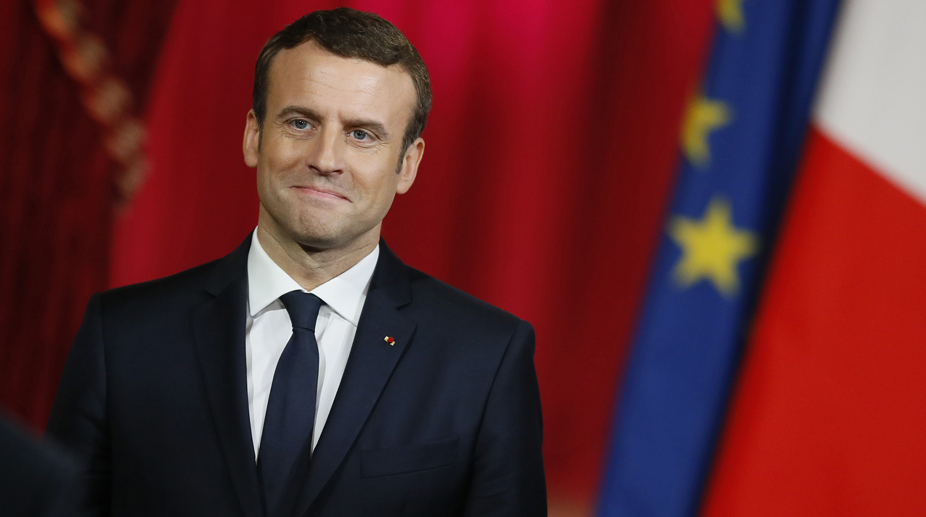Egypt, Jordan, France urge immediate ceasefire in Gaza
Egypt, Jordan, and France have urged an immediate ceasefire in the Gaza Strip, which has been under Israeli siege and bombardment over the past six months.

French President Emmanuel Macron
The French President Emmanuel Macron’s new centrist party is seemingly poised for a landslide victory in the parliamentary elections.
This must be the reassuring side to Europe's electoral coin in stark contrast to Theresa May's setback, though she is likely to remain at the crease for some time yet.
The achievement must seem still more spectacular as Macron's La République En Marche (Republic on the Move) ~ just one-year-old ~ has won 32.32 per cent of the votes in the first round, against 21.56 per cent secured by Les Républicains and the far-right Front National's 13.2 per cent. Admittedly, the turnout was low.
Advertisement
However, contextualised with the Socialist party's 9.5 per cent of the vote, the message conveyed by the electorate is resonant enough ~ France has reaffirmed its faith in the centre road.
The electorate appears to be equally disillusioned with the former President Francois Hollande's mildly Left credentials and the far-right's nationalist political philosophy at another remove.
The traditional left and right parties that dominated parliament for decades were trounced in the presidential election and their support is projected to dwindle to historic lows. Warnings by the rightwing party, Les Républicains, and the Socialist party that it would be unhealthy for democracy if Macron’s party won a “monopoly” did not appear to be heeded by voters.
Remarkable indeed has been the psephological swing, recalling the Bharatiya Janata Party's resurgence from two seats in the Lok Sabha in 1984 to a majority in the late Nineties. Macron’s fledgling centrist movement could, with its centrist allies, graduate from zero to as many as 430 seats in the 577-seat French national assembly.
This would be one of the biggest majorities in France since the end of World War II, indeed a landmark in electoral history per se.
“France is back,” was the immediate reaction of Prime Minister Édouard Philippe, almost suggesting that this parliamentary election signals the rediscovery of the country's libertarian credentials. “For the past month, the President has shown confidence, willingness and daring in France and on the international stage”.
Well and truly has Macron buttressed his personal triumph in the presidential election, vindicating what the PM calls his "winning strategy". Macron does require a solid parliamentary majority if he is to put in place his plans to loosen France’s extensive labour laws and change the French welfare system on pensions and unemployment benefits, indeed to effect his social sector agenda.
For all that, the new President will have to address the question whether the patience of the voter is sorely tried as the turnout was a record low of just 49 per cent.
France has witnessed a multiplicity of elections over the past 10 months, from the party primaries on the right and left, to the two-round presidential vote. A huge responsibility devolves on the incumbent at the threshold.
Advertisement